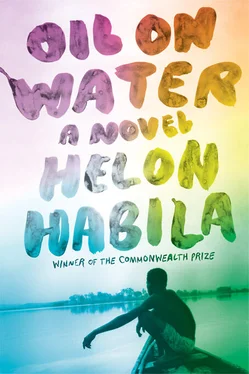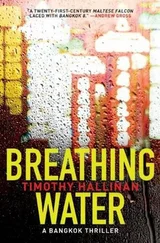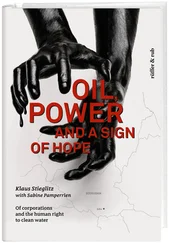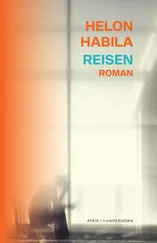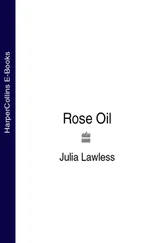— Well, it was at this point that Anita miraculously reentered his life. Only this was not the same awkward young girl he had written about in his famous “Five Women” article. This was a grown woman. Poised. She had been to university, she had a good job with a bank in Lagos, but of course her veneer of respectability didn’t stop the gutter press from tagging them “the Prostitute and the Radical.” There were pictures of them together at fancy parties, book launches, media events.
I remembered, this was in 2004, the year I first met Zaq, the year he gave the lecture at my school, the year his heavy drinking began to finally take its toll on him.
— A wedding date was announced. Later, the papers said that he went to London against his better judgment. Anita wanted her trousseau from only the best stores on Oxford Street, and the minister was kind enough to offer to foot the bill as his wedding present. He took the couple along with him when he went to a Commonwealth ministers’ conference in London. Only they never got past customs. Cocaine was discovered in Zaq’s toilet bag, among his shaving things. At the trial he said he had no idea how it got there. The papers back home suddenly turned vicious on him, some implying that he’d been carrying the drugs for the minister. Others, who took the time to investigate Anita’s background, discovered that while at university she’d had a series of liaisons with very rich men, some of them associated with the drug world. At the trial, he said not a single word against her, his only plea being that the minister shouldn’t be associated with the story. But of course the minister was sacked, and Zaq’s Lagos career came to an end. After a year in a UK prison he was deported back to Nigeria, where he was set free after serving only a month in jail. And after his jail term, he disappeared from Lagos.
I stood up.
— Thanks, Mr. Johnson, but now I—
— Okay, okay. You really have to go. But tell Zaq to get back here as soon as possible. Tell him not to try me, tell him not to force my hand, or else. . from tomorrow no pay. Tell him that.
— But what if—
— Just tell him.
Zaq had fallen asleep while I was talking, his whiskey bottle, nowthree-quarters empty, clutched tightly in his hand. I went out and walked up the hillock, and suddenly I was facing the water over the top of the scanty trees. The wind from the sea blew into my face, fresh, moist, and I was instantly filled with an unaccountable exhilaration. I felt free. With my back against a tree, I faced the water, and when I got tired of staring at the water I opened my book. But as I bent my head to read I noticed a white shape in the distance, many white shapes, a procession coming out of the line of trees on the path that circled the hillock, leading to the sea. They were each holding a staff, and toward the middle two men were bearing what looked like a body covered in a white sheet on a stretcher. I thought I was about to witness some kind of sea burial, and I debated whether to dash back to the hut to get my camera. But I decided against it; I didn’t want to miss anything. A low chanting reached me faintly where I sat. When they got to the edge of the water, they put down the stretcher and then the corpse threw aside the white sheet, miraculously sat up and started to crawl on all fours, its robe dragging in the wet sand, till its knees and arms were in the waves, and then it sat in the water. The others gave out a loud sigh and joined the sitting figure, forming a semicircle behind it, their backs to me, facing the huge dying sun, their arms outstretched, supplicatory, and their sighs suddenly turned into loud wails. They went on like this for a long time, swaying rhythmically, imitating the movement of the waves, and then one by one they came out of the water and headed back to the huts.
— They believe in the healing powers of the sea.
I turned, startled by the voice above me. A woman, her face unclear because my eyes were still blinded by the sun, was facing me, her back to the sun. She was tall and slim, wearing a long black skirt and a green blouse.
— Hello.
I stood up.
— You were watching the worshippers.
— The worshippers.
— Yes. You must be the other reporter. I’m the nurse. I’ve been attending to your friend. I saw you come up this way.
I pointed at her clothes. — You’re not worshipping with them today?
— I’m not a worshipper. I’m just the nurse.
— Well, I see. .
Now that I could see her properly, I put her age at about thirty, but she had intimations of lines on her face, signs of habitual worry, or grief, and there were a few white streaks in her hair, but instead of making her appear aged, the lines and gray hair made her look interesting, beautiful in an unconventional way.
— I’m Rufus.
— I’m Gloria.
We stood side by side and watched the procession disappear into the trees.
— Who’s on the stretcher?
— You don’t know?
— No.
— That’s the head priestess. They’ve started the ceremonies for her death.
— Death?
— She announced this week that she is dying. The procession you saw is part of the ceremony.
— And you, how are you involved in all this?
Before I could ask another question she looked away, and for a moment I thought she found my direct questions rather rude, but she didn’t look annoyed: she was staring up at a cloud of bats that had suddenly appeared out of the trees, cackling as they swarmed into the darkening sky, frolicking in the last light. She turned and beckoned to me. — Come, we will be late for dinner.
I followed her down the slope and into the sculpture garden.
— These islands used to be a big habitat for bats; now only a few dozen remain here and there.
— Why?
She wordlessly turned and pointed at the faraway sky, toward the oil fields. — Gas flares. They kill them. Not only the bats, other flying creatures as well.
DINNER WAS AN OPEN-AIR AFFAIR, with the worshippers in white sitting in little groups under the trees on benches and logs and in the grass, eating with their fingers, laughing and calling out to one another. I felt a bit out of place in my jeans and short sleeves, but having Gloria with me saved me from being the only one not wearing a white robe.
— This is Rufus.
I shook hands all around and nodded politely as introductions were made. We had joined a group of four sitting in the grass not too far from the kitchen. Gloria told me to sit while she went to get the food, and as she turned to go I saw Naman coming over to join us. Soon an intricate discussion around theology had started. He gave, I realized for my benefit, a brief history of the shrine. I ate and listened.
The shrine was started a long time ago after a terrible war — no one remembers what caused the war — when the blood of the dead ran in the rivers, and the water was so saturated with blood that the fishes died, and the dead bodies of warriors floated for miles on the river, until they were snagged on mangrove roots on the banks, or got stuck in the muddy swamps, half in and half out of the water. It was a terrible time. The land was so polluted that even the water in the wells turned red. That was when priests from different shrines got together and decided to build this shrine by the river. The land needed to be cleansed of blood, and pollution.
— And what of the sculptures?
— The sculptures came later. As the priesthood grew, some became specialists in mud and wooden figures. These figures represent the ancestors watching over us. They face the east, to acknowledge the beauty of the sun rising, for without the sun there would be no life. And some face the west, to show the dying sun the way home, and to welcome the moon. And each day the worshippers go in a procession to the river, to bathe in it, to cry to it, and to promise never to abominate it ever again.
Читать дальше
